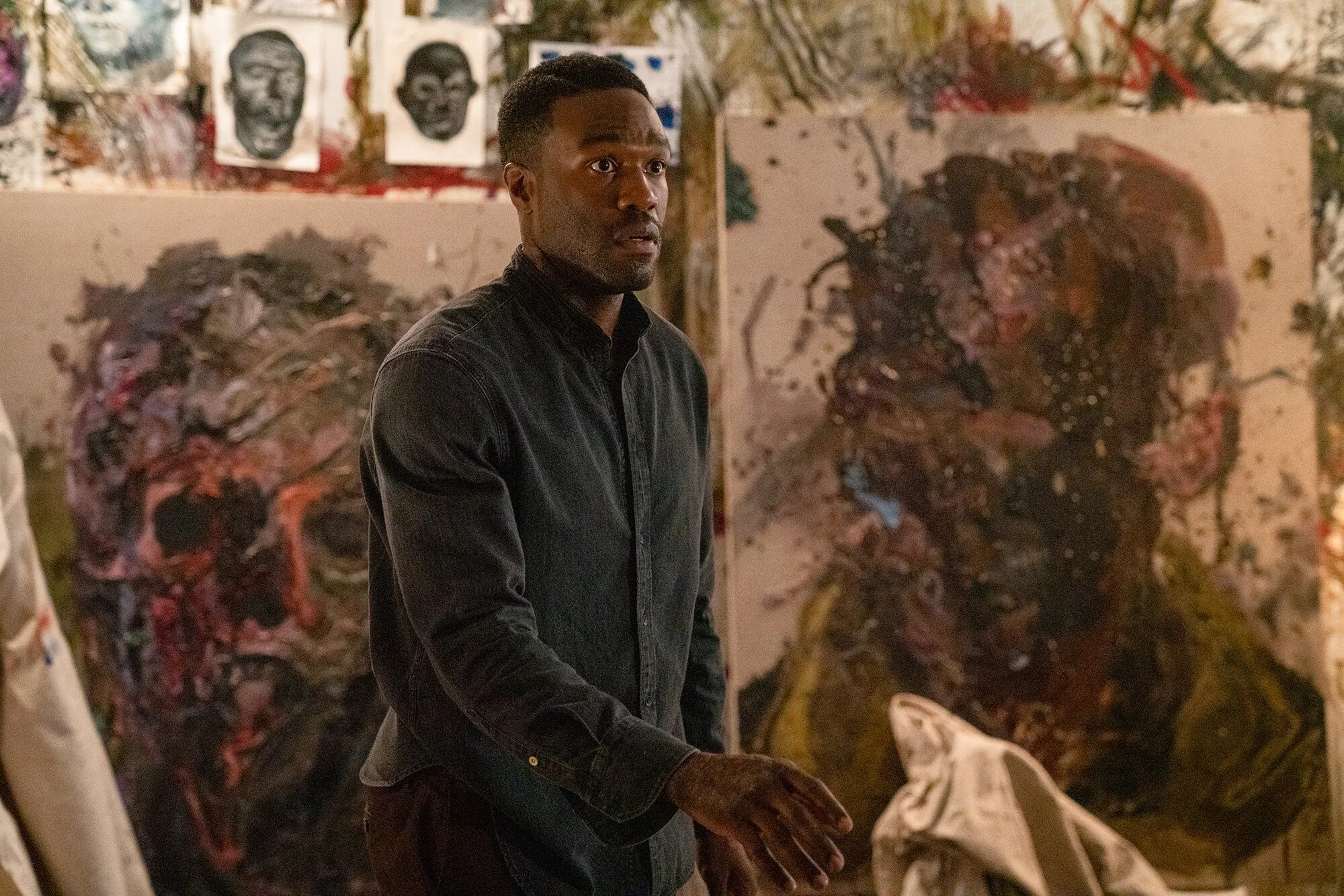Film Review: "Get Out" blends thrilling entertainment with sobering social commentary
Throughout Get Out, I couldn't help but recall a quote from The Autobiography of Malcolm X. I'll paraphrase it here because it's a long passage, but it goes something like this:
"The white liberal is the worst enemy to the black man in America. The liberal elements of whites are those who have perfected the art of selling themselves to the Negro as a friend to the Negro. Getting sympathy of the Negro, getting allegiance of the Negro, and getting the mind of the Negro. So that anything the Negro does is never for his own advancement, never for his own progress, he's only a pawn in the hands of the white liberal."
This paragraph as a horror/comedy movie is writer & director Jordan Peele's Get Out.
Get Out succeeds as a genre-bender (what if the black guy in the horror movie was not only not a disposable victim but also a competent, intelligent protagonist?) and as an unflattering reflection of the most virulent strains of modern white wokeness, which, if you want to see a particularly egregious example of, there's this polished abortion. It's hard to overstate the unflattering-ness of it. I initially saw something of myself in the monsters in Get Out, who upon their introduction go to considerable lengths to prove how totally not-racist they are, but only come off to the casual observer as uncomfortable and guarded. It'd be too easy, and ultimately hollow, if the boogeymen in Get Out were toothless, murderous rednecks waving a confederate flag; that kind of evil is alien to a lot of people, beyond comprehension, and far too easy to disapprove of. Although the horror elements in Get Out are seemingly hockey (hypnotism, hijacking bodies, and jump scares galore), they're drawing their power from some corrosive real life insidiousness.
But first and foremost, Get Out is fundamentally a riotously entertaining film. Peele juggles the comedy and the scares so effortlessly. The pure fun factor reminded me of Cabin in the Woods. However whereas Cabin in the Woods had little to offer besides a wink and “gee, horrors are pretty predictable, huh guys?” (not that there's anything wrong with that), Get Out has a point of view beyond basking in its own meta cleverness. If I have any complaints, it's that you more or less know where the plot is going, and it takes its sweet time getting there, and maybe there are also a few too many instances of jump scares. Jump scares are terrific if deployed at the right time and used sparingly, but there are like 6 of them in this hour-and-a-half film. Still, even its flaws are in service of thematic purpose and keeping things playful.
Chris Washington (Daniel Kaluuya) is visiting his caucasian girlfriend Rose's (Allison Williams) family estate. “Have you told them I'm black?” Chris asks her. She brushes off his concern with a “If they could've voted for Obama for a third time, they would've.” At first, his interaction with her family is only banally excruciating, with her father greeting Chris as “mah man”. And also her brother assuring him that he has the right genetics for MMA. “You could be a fuckin' beast,” he says with chilling ferocity, at once coveting and resenting him.
By the time the horror that can only exist in movies begins (the aforementioned hypnotism and body hijacking), it's almost a relief. But it's here that the film delivers its most effective metaphor that conveys the terrifying annihilation of agency and identity. Rose's mother (Catherine Keener) hypnotises young black men and women under the guise of helping them, of being their friend. As viewers, we're not spared the terror of what her particular brand of hypnotism feels like when she works her freaky mojo on Chris. Jordan Peele visualises it as the young man suspended in endless darkness. The only thing he can do is see the world through a television shaped screen. It's a potent visual – the only one in the otherwise mundane Get Out that is cartoonish, so it's also the film's most important visual – that communicates appropriation in the grimmest way possible; they're aware yet utterly powerless as their bodies are then fetishised and used as commodities by powerful white people.
It's a loaded little detail that the hypnotised can only watch the world through a television shaped screen. Consider 1915's Birth of a Nation, a film that exalt the KKK portrays black men as savages who'll rape and murder white women because it's as natural to them as drawing breath. Also consider 2009's Transformers: Revenge of the Fallen, a major Hollywood film marketed to children and therefore its every creative decision was approved by a thousand people, shows two of its robot heroes as every ugly Black American stereotype possible – gold-toothed, illiterate, and aggressive. These are two examples – the former is regarded as art and the latter is derided as Hollywood sewage, and were released nearly a century apart. They have not a thing in common except for one sinister aspect.
Television and film are the lenses through which we view ourselves. It's hard for me to imagine my body, and therefore my Self, forcibly contorted in an endless series of humiliating and frightening poses on the biggest cultural stage ever for the purpose of getting the whole world to tacitly nod in approval, as if to say “well yes, of course.” And worse yet, to have that regarded as normal. Get Out makes imagining such a thing beyond the realm of an intellectual exercise. But by extension this leaves me even more disturbed at the times I tacitly nodded in approval myself. Get Out got under my skin.






